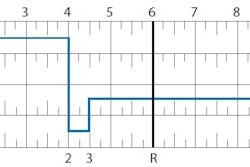When the Federal Motor Carrier Safety Administration last updated its hours of service regulations on September 29, 2020, the COVID pandemic had already gripped the nation for a solid six months, with no hint of a "return to normal" in sight. Now, nearly two years later, only the men and women of over the road trucking stand fully equipped to assess the actual impact of the split-sleeper changes handed down with the new rule, among the most significant HOS changes since the ELD mandate.
The FMCSA declined to openly comment on the success or failure of the 2020 changes on productivity grounds, but that much is understandable as split-sleeper and other changes overlap with the COVID HOS waivers issued on a continuing basis throughout the pandemic. (The latest such waiver expires in August, as about a third of recent poll respondents note they continue to utilize the waiver on nearly every load.) Evaluation of the hours changes from a safety perspective, too, is difficult, given so much of the regs have been waived for so many over the time period since implementation.
From a productivity standpoint, the new split-sleeper appears to have delivered more efficient use of time allowed in the regs, according to owner-ops interviewed for this story.
While at first the change seemed difficult to account for via many ELD software systems, and some dubbed it a half measure with respect to alleviating detention time at understaffed shipper and receiver facilities, owner-operators said it's become a new arrow in their quiver to deal with delays on the road. These interviews follow an Overdrive poll, which found that the wide majority of drivers, some 303 out of 455 respondents as of this week, or two-thirds, found the 2020 hours changes made them more productive. Half pointed to the split sleeper changes helping daily duty-cycle management, while more than half noted their required 30-minute breaks, such as they may be, can now be taken at less arbitrary times.
Just 15% and 14%, respectively, said HOS changes didn't have any impact or actually hurt their productivity.
Of the group that said the change actually hurt them, none could be reached for comment. Email [email protected] if that describes you.
Mark Ramsey, an owner-operator working with brokers in the growing power-only niche, said the rule helps him not to stress too much about the great productivity killer for drivers -- detention at shipper and receiver facilities. The split-sleeper rule "is helpful," said Ramsey. "Before, we had no way of shutting off the 14 hours once we got started. Now we kinda do. If you run into a situation where you get delayed somewhere, [or you're] not going to get loaded for few hours, you can go take a nap."
Ramsey said he hated to "say I use it to lengthen my day, but I definitely do," citing myriad situations in which it's helpful for a driver to simply retire into the sleeper berth as the loading, unloading or dispatch sorts itself out.
Otherwise, his power-only work also helps him keep his drive time and productivity up. While he does sometimes miss having control over the maintenance of the trailers he pulls, "at least 50% of our loads are preloaded for us, so that saves a lot of time," he said.
Using a product called ELD Solutions from a company out of Tennessee, Ramsey noted he's sometimes pleasantly surprised by the ease and flexibility of the new rule.
[Related: ELD makers report ongoing updates as drivers navigate new hours options]
"I had an instance where I had went to Pennsylvania, unloaded, and then came down to a place where we reload a lot and then sat waiting on product," said Ramsey. "I ended up sitting there pretty close to eight hours. When I got done all I had to do was go to my e-log to see what I had available. I picked up right where I left off and continued back on the road.
Before the rule change, he might "have had to sit there the full 10 hours," or at least get all the way to eight in the sleeper under the old split-sleeper provision, to pick up available duty hours. "That’s where it comes in handy," he said.
Other drivers reported using the increased flexibility to better avoid traffic and all the stress it brings.
"The split-sleeper rule works out great," said owner-operator John Zick. "If I'm running into Chicago in rush hour, I can plan my day and stop at the state line around 4 p.m. if I'm coming down from Wisconsin, wait at least three hours and then zip right through Chicago."
As for logging that break and making it count toward a split-sleeper pair, Zick said it's really no sweat. "I find the math easy to do, I have a computer program to use and it keeps me out of trouble. It’ll throw a red line up if I’m in violation anywhere, so it helps guide me. I find it beneficial and glad they added it."
Before the 2020 changes, that three-hour break would have counted against the ticking 14-hour daily duty maximum. Now, it doesn't, so there's both opportunity, and incentive, to rest and wait out the traffic. Given Chicago congestion between 4 and 7 p.m., Zick said he'd end up at his destination "basically at the same time" whether he used the break or not. It's what some call a proverbial win-win: get a little rest and avoid the frustrations of traffic, as well as the wear and tear it accumulates on his 2017 Peterbilt 379, a glider kit he powers with a 1994 ELD-exempt Detroit Series 60 engine.
Zick mostly hauls around the Midwest, often pulling cheese out of Wisconsin in a reefer.
The Detroit, according to Zick, gets its best fuel mileage around 68 to 72 mph, so skipping traffic stretches his diesel dollar at a time of unprecedented fuel prices against a weakening rates environment.
[Related: Will only the strong survive historic fuel-price highs?]
While Zick says the split-sleeper rule represents a step in the right direction, the FMCSA's recent talk about speed limiters has him pessimistic generally about the regulatory scenario. Overall, he imagines he'll keep hauling as he always does, though. (Overdrive did some polling on speed limiters, and the 2020-instituted split sleeper provision it's safe to say is wildly popular compared to that idea.)
"Years ago when they first did the 14 -hour day, all these drivers said 'I’m quitting,'" said Zick. "But then it happened and everyone just said, 'I guess I won’t quit.'"
As for speed limiters and whatever else the regulators decide, he imagines the changes will go over just about as well.
But for Shawn Clevenger, who hauled dedicated flatbed loads for Peterbilt and John Deere, he never found any use for the split-sleeper provision. "I found it to be very confusing," he said. "I never could quite get it figured out right. The way I ran I didn’t really need to use it" either, as his route took days across the country back and forth.
Clevenger's case brings to mind the initial confusion around the regulation, with which some ELD systems didn't immediately gel. For a refresher on the ins and outs of logging a split, read here.
[Related: Where to find a two/three-hour 14-hour clock pause in the new HOS]
Unfortunately, a tic bite saw Clevenger contract Rocky Mountain spotted fever and exit the industry not long after the rule change. He recommends anyone who gets bitten by a tic to save and freeze the tick in case they get sick -- medical professionals might then quickly identify any infections and hopefully avoid his troubles.
But before illness, Clevenger already felt the weight of regulation bearing down on him and pushing him out of the business.
Both Ramsey and Zick thought of the hours of service changes, almost two years in, as a step in the right direction. But overall both remained of the opinion that the FMCSA tended to over-regulate and under-serve the industry, an opinion also expressed by Overdrive contributor Clifford Peterson here.
Speaking of speed limiters, comments on the agency's most recent request for information around their intention to pursue a limiter mandate close Monday. You can file your comment via this link.










